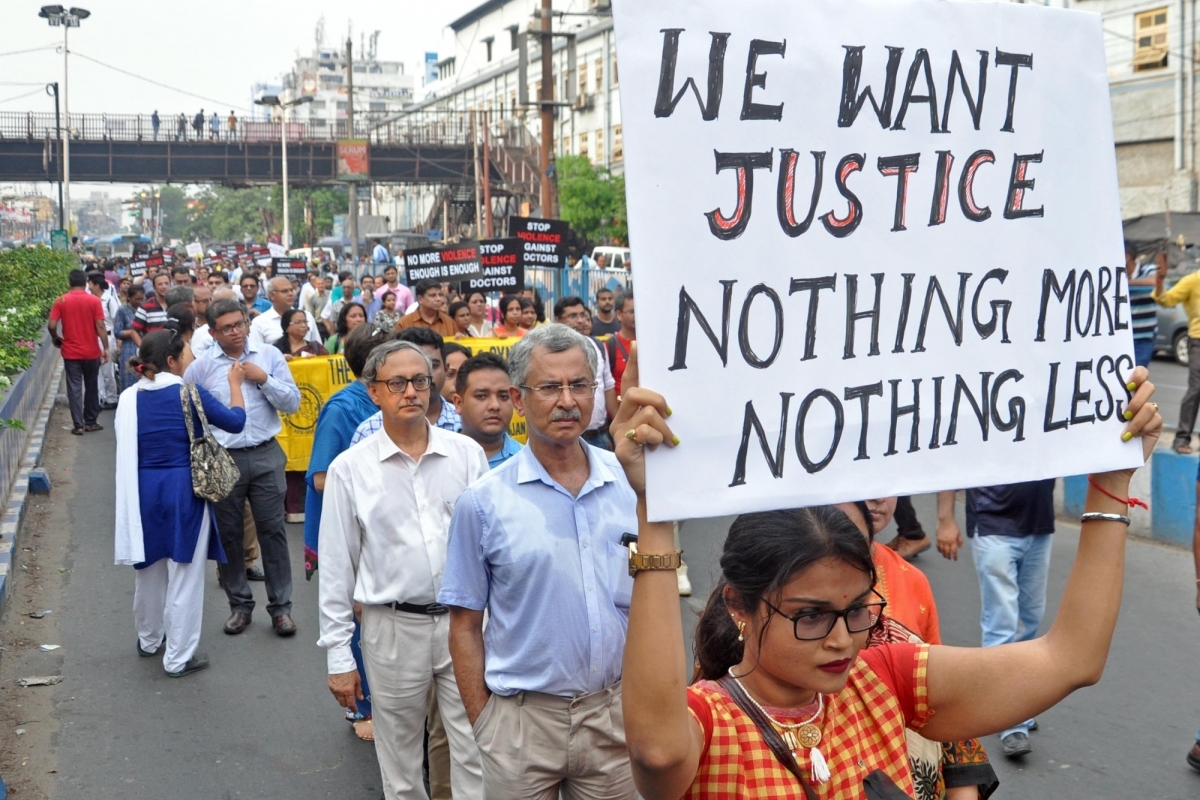West Bengal Governor Keshari Nath Tripathi tried to contact Chief Minister Mamata Banerjee on kate Friday to discuss the ongoing doctors’ strike that has affected hospitals across the state.
“I have tried to contact the CM. I have called her. Till this moment there is no response from her. If she calls on me then we will discuss the matter. I have called her, let her come,” Tripathi was quoted as saying by ANI.
Advertisement
Protests by doctors intensified across the country in solidarity with their agitating colleagues in West Bengal who are on a stir ever since an assault on junior doctors at NRS Medical College and Hospital by the relatives of a patient who died on Monday night.
Over 150 doctors from four medical colleges submitted their resignations to the Director of Medical Education and Ex-officio Secretary, West Bengal, on Friday over violence against doctors in the state.
A total of 119 doctors of North Bengal Medical College & Hospital, Darjeeling, were among those who resigned.
Even the Bengal CM’s nephew, Abesh Banerjee, extended his support to protesting doctors. Abesh is a medical student. He was reportedly seen at a rally holding a placard that read: “You say we are Gods!! Why Treat us like Dogs?”
Earlier, Kolkata Mayor and state Minister Firhad Hakim’s daughter, a doctor, criticised the government’s handling of the ongoing doctors’ strike and said medicos had the right to “peaceful protest” and “safety at work”.
In a Facebook post, Shabba Hakim asked people to question why “goons were still surrounding hospitals and beating up doctors”.
Union Health Minister Harsh Vardhan wrote to the Bengal CM urging her to “personally intervene” to resolve the impasse and take “steps to provide a secure working environment to doctors in the State of West Bengal”.
“It is a matter of concern that the agitation by doctors in West bengal is not heading towards resolution but seems to be getting aggravated,” he wrote.
“Better communication with doctors and a compassionate approach to take care of the genuine problems being faced by them in day to day functioning would definitely be helpful in tiding over the crisis which has been created,” the Union Minister added.
In a tweet posted later, he called for the passing of a law that makes attacks on doctors a non-bailable offence with minimum jail term of 12 years.
“Heinous repeated attacks on doctors across India esp WBengal have led to this situation.Govt must pass a Law to make any attack on Docs a non-bailable offence with min 12 yr jail. Draconian Clinical Establishment Act that treats Docs as criminals must be withdrawn,” the Union Minister tweeted.
The Indian Medical Association (IMA) launched a three-day nationwide protest from Friday to express solidarity with the doctors and called for a strike on 17 June with withdrawal of non-essential health services.
Doctors from many parts of the country expressed solidarity with the protesting doctors in West Bengal.
In Raipur, around 400 junior doctors of Dr BR Ambedkar Memorial Hospital staged a protest from 8 am to 2 pm in premises of the medical facility.
Several doctors went on a one-day strike at state-run Goa Medical College and Hospital (GMCH). Over 1,200 resident doctors at the Postgraduate Institute of Medical Education and Research (PGIMER), Chandigarh, held a demonstration. Over 100 doctors staged a dharna in Coimbatore.
Doctors in Delhi’s AIIMS and other prominent hospitals in Maharashtra, Karnataka, Odisha, Andhra Pradesh, Telangana as well as other places stayed away from work, demanding justice for their Bengal counterparts and enhanced security for practitioners.









